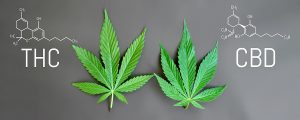 We receive many questions about CBD Oil e.g. will use of CBD produce a positive for marijuana?
We receive many questions about CBD Oil e.g. will use of CBD produce a positive for marijuana?
The answer is not a YES or NO but rather it depends. It is a very complicated subject. An article in Mountain West Wire discusses this question. A summary is presented below. But we encourage visiting the article to gain a more in depth understanding of the area.
The popularity of CBD oil has skyrocketed in recent years, with more people turning to this natural remedy for its potential benefits. One of the most common questions surrounding CBD oil is whether it can cause a positive result on a drug test. Understanding how CBD oil interacts with drug tests is essential.
CBD, short for cannabidiol, is a naturally occurring compound found in the cannabis plant. Unlike THC (tetrahydrocannabinol), which is the primary psychoactive component in marijuana, CBD does not produce a “high.”
The cannabis plant contains over 100 different cannabinoids, with CBD and THC being the most prominent. In contrast, CBD is non-intoxicating and is valued for its potential therapeutic properties without altering the mind.
Both CBD and THC interact with the body’s endocannabinoid system. However, while THC binds directly to the CB1 receptors in the brain, leading to psychoactive effects, CBD’s interaction is more indirect, which is why it does not produce a high.
Drug tests are commonly used to detect the presence of substances that are considered illegal or impairing. It’s important to note that the term “cannabinoids” generally refers to THC, not CBD.
Pure CBD, particularly in the form of CBD isolate, should not cause a positive result on a drug test, as these tests are not designed to detect CBD. However, the situation becomes more nuanced with full-spectrum and broad-spectrum CBD products:
Full-spectrum CBD products contain a wide range of cannabinoids, including trace amounts of THC (up to 0.3%). While this level of THC is generally not enough to cause psychoactive effects, it can still accumulate in the body with consistent use, leading to the possibility of a positive drug test result, especially for individuals who consume large doses.
Broad-spectrum CBD products contain multiple cannabinoids but are typically processed to remove THC. However, trace amounts of THC might still be present due to manufacturing inconsistencies or cross-contamination.
CBD isolate is the purest form of CBD, containing 99% or more CBD and no THC. This type of CBD product is the safest choice for those concerned about drug testing, as it is unlikely to cause a positive result.
One of the significant risks associated with CBD oil and drug testing is the potential for product contamination or mislabeling. The CBD industry is not uniformly regulated, which means that some products may contain higher levels of THC than advertised. Even if a product claims to be THC-free, cross-contamination during production or extraction processes can lead to the presence of THC.
Studies have shown that a significant number of CBD products are mislabeled, with some containing more THC than indicated on the label.
Several factors can influence whether CBD oil use will affect drug test results:
- Frequency of Use: Regular use of full-spectrum CBD products, even with trace amounts of THC, can lead to accumulation in the body, increasing the likelihood of a positive test result.
- Dosage: Higher doses of CBD oil may contain more THC, even if within legal limits, which can also accumulate in the body over time.
- Individual Metabolism: People metabolize cannabinoids at different rates. Factors like age, body mass, hydration level, and overall health can affect how quickly THC is processed and eliminated from the body.
- Type of Drug Test: Different drug tests have varying sensitivity levels. Urine tests, for instance, are more likely to detect THC metabolites compared to blood or saliva tests.
- Quality of CBD Product: As mentioned, using low-quality CBD products from unreliable sources can increase the risk of contamination with THC, leading to unintended positive results on drug tests.
If you are concerned about passing a drug test while using CBD oil, consider the following precautions:
- Choose CBD Isolate or Broad-Spectrum Products: To minimize the risk of exposure to THC, opt for CBD isolate or broad-spectrum products that are marketed as THC-free. These options provide the benefits of CBD without the added risk of THC.
- Check Third-Party Lab Reports: Always purchase CBD products that provide third-party lab reports or certificates of analysis (COAs). These reports confirm the cannabinoid content of the product and verify that the THC levels are within legal limits or non-existent.
- Buy CBD oil from reputable companies that adhere to good manufacturing practices and have a track record of producing high-quality, accurately labeled products.
If you know a drug test is upcoming, it may be wise to pause CBD use, especially if you are using full-spectrum products. Although this may not be feasible for everyone, it can help reduce the risk of a positive result.
If you are subject to regular drug testing and use CBD for legitimate reasons, consider informing your employer or the testing authority.
It’s important to be aware of the legal protections in your area and to understand your rights as an employee or athlete.
Conclusion
Although CBD itself should not cause a positive drug test, the presence of THC in full-spectrum products or the potential for contamination in mislabeled products can pose risks. By choosing high-quality, THC-free CBD products, verifying product contents through third-party lab reports, and being mindful of dosage and frequency of use, you can enjoy the benefits of CBD oil with a lower risk of failing a drug test.


